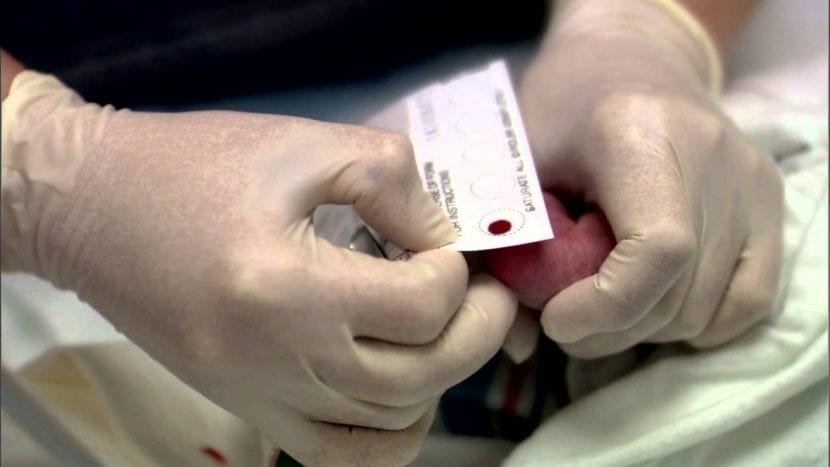
The heel test, also known as newborn screening, is a tests performed in the first days of the baby's life to detect early possible congenital diseases. This test is routine throughout Spain and in most countries of the European Union. Thanks to it, diseases have been diagnosed that with early treatment have had positive prognoses, thus improving the quality of life of both the baby and the parents.
In analytics, various metabolic diseases are studied. They occur when the body does not manage to work well with chemical regulation; This can lead to malfunctioning organs that are affected. There are some disorders that can affect the normal development of the baby's brain. Let's see them in more detail:
What diseases are you looking for?
Although the study of one or the other depends on the autonomous community of each family, as a general rule these diseases are the ones that most frequently appear in the heel test. Up to 19 different congenital metabolic diseases can be detected so it is vitally important to do it to all babies. Some of them are:
- Cystic Fibrosis: it is a serious and rare disease that causes a abnormal functioning of the exocrine glands. The most affected organs are the lungs and the pancreas, so a positive baby will have problems with the secretion of his lungs and poor digestion by the pancreas.
- Phenylketonuria: alteration that prevents the amino acid phenylalanine present in proteins of high biological value from being transformed into tyrosine. May damage the central nervous system and brain long-term if treatment is not followed.
- Hypothyroidism: caused by a low production of thyroid hormones due to an alteration of the thyroid gland. Is related to slow intellectual development of children who were not diagnosed with this disease at birth.
- Sickle cell anemia: this disease is characterized by incorrect morphological formation of red blood cells. Being deformed, they do not transport oxygen correctly to the organs and can lead to a build-up of carbon dioxide in the body, something that is toxic.
- Glutaric acidemia type 1: difficulty in breaking down proteins, so there will be accumulation of harmful substances in the body.
I have a positive, what do I do?
If your baby has tested positive for any of these pathologies, you will be contacted by phone as soon as possible to perform a second test.. The first two tests consist of the same thing; blood collection on absorbent paper from a cut in the baby's heel. It is advisable to breastfeed your baby during the test. Tetanalgesia is becoming more and more widespread in hospitals when testing babies. This would ensure that you are calm and thus facilitate sufficient blood sample collection.
If you get a second positive, you will be referred to the specialist for specific tests for that disease. For example, my daughter tested positive for cystic fibrosis. After about 20 days, I was summoned for a second screening. After a few days of that second test they called me and referred me to the pulmonology hospital since we had had a second positive. In the hospital they did the sweat test, which is the specific test for the detection of cystic fibrosis. After almost a month of doubts and fear, the result was two false positives.
So if you have one or two positives, don't take anything for granted until the final tests are done. It is a very hard time to receive positive tests. But thanks to this early detection, we make sure that our children will get a treatment that will help them to have quality of life. Medicine is advancing little by little, perhaps not as fast as we would like, and there are more and more solutions to treat these congenital diseases.
